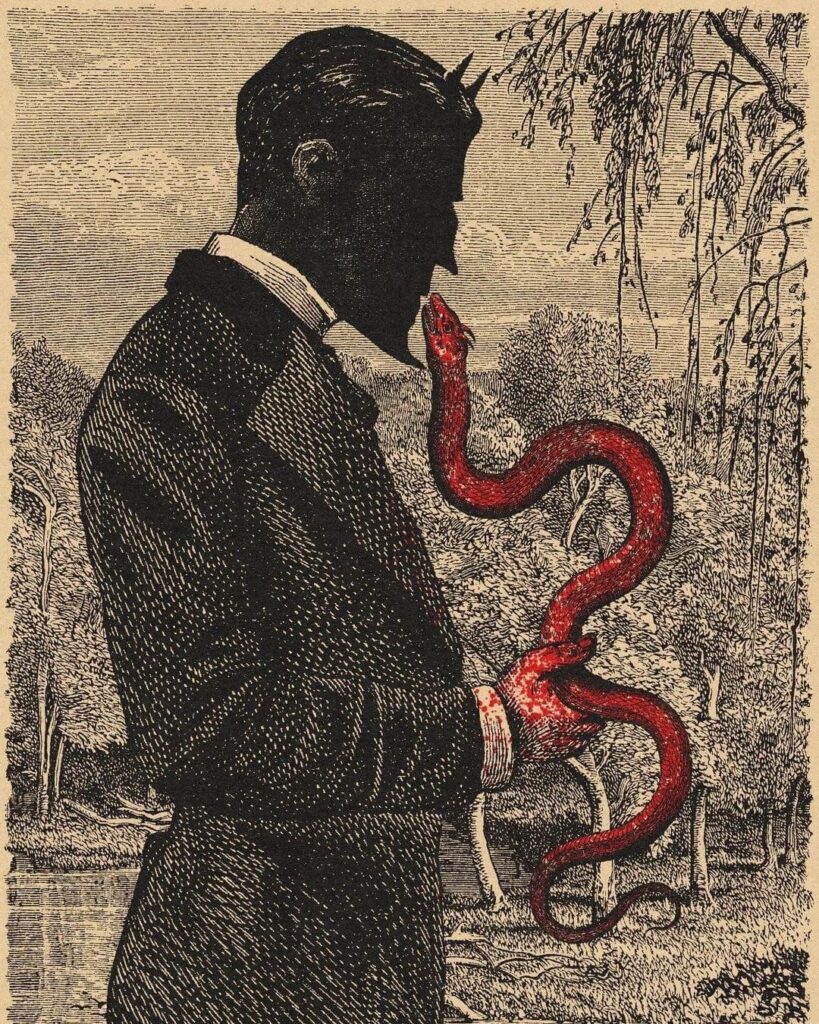Physical Address
304 North Cardinal St.
Dorchester Center, MA 02124
Physical Address
304 North Cardinal St.
Dorchester Center, MA 02124
With Michael Walker
With Michael Walker

To whom it may concern.

Throughout history, morality has been framed within religious contexts—sin, virtue, redemption. But what if the need for salvation isn’t exclusive to spirituality? What if humanity itself, regardless of belief, suffers from an inherent flaw embedded in our very nature? This flaw is deception—not something learned, but something instinctual, ingrained in our very existence. It is not taught, yet it emerges effortlessly, even in infancy.
This realization—that deception is intrinsic—forces a deeper contemplation: if the capacity for dishonesty is innate, does that mean humans, whether they accept the concept of sin or not, must be saved from themselves?
Unlike virtues such as generosity or integrity, deception does not require instruction. No one teaches a child how to lie, yet they do. No one teaches an infant to manipulate through cries, yet they learn. This tendency does not arise from environmental or external influence—it is embedded in our wiring.
If deception were simply a learned behavior, it could be unlearned. But if it is a natural inclination, then resisting it requires conscious effort, a rejection of what is easy for the sake of what is right. This struggle—choosing truth when falsehood is simpler—is a battle all humans face.
The problem is not just lying itself, but the slow trickle of deception. A white lie becomes a habit. A habit becomes instinct. Studies have shown that dishonesty can be addictive, growing in frequency until it becomes second nature. The act of lying, once justified as a small convenience, evolves into a lifestyle.
This is where the metaphor of the two roads comes into play. If deception and integrity existed on the same path, switching lanes would be easy. But they do not. They are two separate roads, leading to entirely different destinations. A one-degree deviation may seem insignificant at first, but as time passes, it takes a person further than they ever intended.
This slow divergence reveals the true nature of humanity—not just that deception is natural, but that without vigilance, one may drift toward it without realizing. People do not suddenly become dishonest; they slide toward it gradually, until they wake up as someone entirely different from who they once were.
For those who believe in God, deception is sin—the flaw from which redemption is sought. But even for those who do not believe in spiritual salvation, the problem remains. If deception is ingrained, if selfishness is easier than integrity, then humanity requires saving from itself.
This is what I call the secular version of sin—not sin in the religious sense, but the secular recognition that humanity is inherently flawed and must actively fight against its own worst tendencies. It is not about salvation through faith, but salvation through awareness. It is about understanding that dishonesty is not merely a failing but an innate condition, and that resisting it is the only way to remain grounded in truth.
Whether one sees deception as sin or simply human nature, the reality is the same: it is in us. It is not learned; it does not come from anywhere. It is part of who we are. This is why humanity, regardless of belief, must be saved from itself—not through divine intervention for some, but through conscious choice.
Deception is not merely an act—it is a threshold. What begins as a simple lie often leads to manipulation, exploitation, and harm. Once a person grows comfortable with deceit, the next step becomes easier, justification. A lie can protect one’s interests, then evolve into a tool for control, then into a weapon.
History and human experience reveal the same pattern—dishonesty rarely remains small. It grows, unchallenged, into deeper corruption. The slow trickle of deception is not just about lying; it is about the erosion of conscience. When truth no longer holds weight, neither does integrity, empathy, or accountability.
This is why deception must not be dismissed as a harmless flaw—it is the foundation upon which greater malice is built. It is not just a bad habit but the beginning of a descent into moral decay. And without recognition of this slippery slope, people risk losing sight of the person they once aspired to be.
If deception is the first step toward moral decline, self-deception is the abyss. It is one thing to manipulate others—it is another to convince oneself that the manipulation is justified, necessary, or even noble. The moment a person believes their own lie, they lose the ability to discern truth from illusion.
Self-deception is dangerous because it does not feel like deception at all. It masquerades as rationalization, as self-preservation, as control. A person may convince themselves they are acting for the greater good, that their dishonesty is harmless, that their selfishness is warranted. In doing so, they blind themselves to reality.
This form of deception is the hardest to escape. When one deceives others, they still possess the ability to recognize truth. But when one deceives themselves, they may never realize they are lost. It is the lie that buries all other lies—the lie that convinces a person they are still on the right path, even as they walk deeper into darkness.
By recognizing deception as something embedded rather than acquired, people can begin to understand their own flaws—and only then can they work to rise above them.